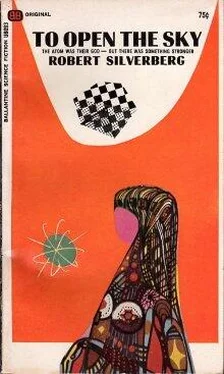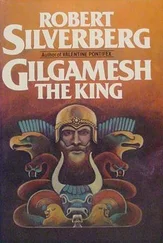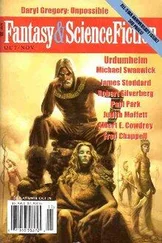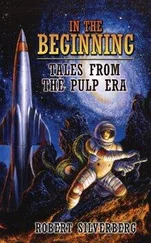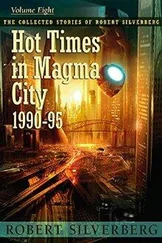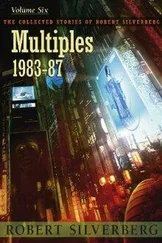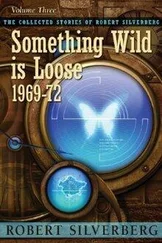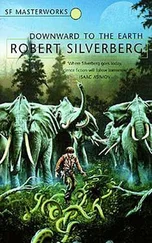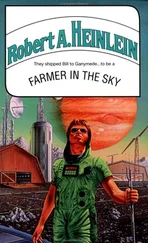Robert Silverberg - To Open the Sky
Здесь есть возможность читать онлайн «Robert Silverberg - To Open the Sky» весь текст электронной книги совершенно бесплатно (целиком полную версию без сокращений). В некоторых случаях можно слушать аудио, скачать через торрент в формате fb2 и присутствует краткое содержание. Год выпуска: 1967, Издательство: Ballantine Books, Жанр: Фантастика и фэнтези, на английском языке. Описание произведения, (предисловие) а так же отзывы посетителей доступны на портале библиотеки ЛибКат.
- Название:To Open the Sky
- Автор:
- Издательство:Ballantine Books
- Жанр:
- Год:1967
- ISBN:нет данных
- Рейтинг книги:5 / 5. Голосов: 1
-
Избранное:Добавить в избранное
- Отзывы:
-
Ваша оценка:
- 100
- 1
- 2
- 3
- 4
- 5
To Open the Sky: краткое содержание, описание и аннотация
Предлагаем к чтению аннотацию, описание, краткое содержание или предисловие (зависит от того, что написал сам автор книги «To Open the Sky»). Если вы не нашли необходимую информацию о книге — напишите в комментариях, мы постараемся отыскать её.
To Open the Sky — читать онлайн бесплатно полную книгу (весь текст) целиком
Ниже представлен текст книги, разбитый по страницам. Система сохранения места последней прочитанной страницы, позволяет с удобством читать онлайн бесплатно книгу «To Open the Sky», без необходимости каждый раз заново искать на чём Вы остановились. Поставьте закладку, и сможете в любой момент перейти на страницу, на которой закончили чтение.
Интервал:
Закладка:
What they were doing down there was remarkable, of course. Summoning all the resources of modem microsurgery, the leading men of the Noel Vorst Center for the Biological Sciences were altering the protein-protein molecular recognition patterns within a human brain. Twist the circuits about a bit: change the transsynaptic structures to build a better link between pre- and postsynaptic membranes; shunt individual synaptic inputs from one dendritic tree to another; in short, reprogram the brain to make it capable of doing what Noel Vorst wanted it to be capable of doing.
Which was to serve as the propulsive force needed to hurl a team of explorers across the gulf of light-years to another star.
It was an extraordinary project. For some fifty years the surgeons here at Vorst’s Santa Fe research center had prepared for it by meddling with the brains of cats and monkeys and dolphins. Now they had at last begun operating on human subjects. The patient on the table was a middle-grade esper, a precog with poor timebinding ability; his life expectancy was on the order of six months, and then a burnout could be anticipated. The precog knew all about that, which was why he had volunteered to be the subject. The most skilful surgeons in the world were at work on him.
There were only two things wrong with the project, Vorst knew: It was not likely to succeed.
And it was not at all necessary in the first place.
You did not tell a group of dedicated men, however that their life’s work was pointless. Besides, there was always the faint hope that they might artificially create a pusher—a telekinetic—down there. So Vorst dutifully attended the operation. The men on the amphitheater floor knew that the Founder’s numinous presence was with them. Though they did not look up toward the gallery where Vorst sat, they knew the withered but still vigorous old man was smiling benignly down on them, cushioned against the pull of Earth by the webfoam cradle that sheltered his ancient limbs.
The lenses of his eyes were synthetic. The coils of his intestines had been fashioned from laboratory polymers. The stoutly pumping heart came from an organ bank. Little remained of the original Noel Vorst but the brain itself, which was intact though awash with the anticoagulants that preserved it from disabling strokes.
“Are you comfortable, sir?” the pale young acolyte at his side asked.
“Perfectly. Are you?”
The acolyte smiled at Vorst’s little joke. He was only twenty years old, and full of pride because it was his turn to accompany the Founder on his daily round. Vorst liked young people about him. They were tremendously in awe of him, naturally, but they managed to be warm and respectful without canonizing him. Within his body there throbbed the contributions of many a young Vorster volunteer: a film of lung tissue from one, a retina from another, kidneys from a pair of twins. He was a patchwork man, who carded the flesh of his movement about with him.
The surgeons were bending low over the exposed brain down there. Vorst could not see what they were doing. A pickup embedded in a surgical instrument relayed the scene to a lambent screen on the level of the viewing gallery, but even the enlarged image did not tell Vorst much. Baffled and bored, he retained his look of lively interest all the same.
Quietly he pushed a communicator stud on his armrest and said, “Is Coordinator Kirby going to get here soon?”
“He’s talking to Venus, sir.”
“Who’s ho speaking to? Lazarus or Mondschein?”
“Mondschein, sir. I’ll tell him to come to you as soon as he’s off.”
Vorst smiled. Protocol suggested that such high-level negotiations be carried on at the administrative level, between the executives and not between the prophets. So the second-in-commands were speaking: Hemispheric Coordinator Reynolds Kirby on behalf of the Vorsters of Earth, and Christopher Mondschein for the Harmonists who ran Venus. But in time it would be necessary to close the deal with a conference between those most closely in tune with the Eternal Oneness, and that would be the task of Vorst and Lazarus.
… to close the deal…
A tremor pulled Vorst’s right hand into a sudden claw. The acolyte swung around attentively, ready to jab buttons until he had restored the Founder’s metabolic equilibrium. Grimly Vorst compelled the hand to relax.
“I’m all right,” he insisted.
…to open the sky…
They were so close to the end now that it had all begun to seem like a dream. A century of scheming, playing chess with unborn antagonists, rearing a fantastic edifice of theocracy on a single slender, arrogant hope—Was it madness, Vorst wondered, to wish to reshape the pattern of history?
Was it monstrous, he asked himself, to succeed? On the operating table, the patient’s leg came swimming up out of a sea of swathing and kicked fitfully and convulsively at the air. The anesthetist’s fingers played over his console, and the esper who was standing by for such an emergency went into silent action. There was a flurry of activity about the table.
In that moment a tall, weathered-looking old man entered the gallery and presented himself to Vorst.
“How’s the operation going?” Reynolds Kirby asked.
“The patient just died,” said Vorst. “Things seemed to be going so well, too.”
two
Kirby had not expected much from the operation. He had discussed it fully with Vorst the day before; though he was no scientist himself, the Coordinator tried to keep abreast of the work being done at the research center. His own sphere of responsibility was administrative; it was Kirby’s job to oversee the far-flung secular activities of the religious cult that virtually ruled the planet. It was almost ninety years since Kirby himself had been converted, and had watched the cult grow mighty.
Political power, though it was useful to wield, was not supposed to be the Brotherhood’s goal. The essence of the movement was its scientific program, centering on the facilities at Santa Fe. Here, over the decades, an unsurpassable factory of miracles had been constructed, lubricated by the cash contributions of billions of tithing Vorsters on every continent. And the miracles had been forthcoming. The regeneration processes now insured a predictable life span of three or four centuries for the newborn, perhaps more, for no one could be certain that immortality had been achieved until a few millennia of testing had elapsed. The Brotherhood could offer a reasonable facsimile of life eternal, at any rate, and that was a sufficient redemption of the promissory note on which the whole movement had been founded a hundred years before.
The other goal, though—the stars—had given the Brotherhood a harder pursuit. Man was locked into his solar system by the limiting velocity of light. Chemical-fueled rockets and even ion-drive ships simply took too long to get about. Mars and Venus were within easy reach, but the cheerless outer planets were not, and the round trip to the nearest star would take a few decades by current technology, nine years even at the very best. So man had transformed Mars into a habitable world, and he had transformed himself into something capable of inhabiting Venus. He mined the moons of Jupiter and Saturn, paid occasional visits to Pluto, and sent robots down to examine Mercury and the gas giants. And looked hopelessly to the stars.
The laws of relativity governed the motions of real bodies through real space, but they did not necessarily apply to the events of the paranormal world. To Noel Vorst, it had seemed that the only route to the stars was the extrasensory one. So he had gathered espers of all varieties at Santa Fe, and for generations now had carried on breeding programs and genetic manipulations. The Brotherhood had spawned an interesting variety of espers, but none with the talent of transporting physical bodies through space. While on Venus the telekinetic mutation had happened spontaneously, an ironic byproduct of the adaptation of human life to that world.
Читать дальшеИнтервал:
Закладка:
Похожие книги на «To Open the Sky»
Представляем Вашему вниманию похожие книги на «To Open the Sky» списком для выбора. Мы отобрали схожую по названию и смыслу литературу в надежде предоставить читателям больше вариантов отыскать новые, интересные, ещё непрочитанные произведения.
Обсуждение, отзывы о книге «To Open the Sky» и просто собственные мнения читателей. Оставьте ваши комментарии, напишите, что Вы думаете о произведении, его смысле или главных героях. Укажите что конкретно понравилось, а что нет, и почему Вы так считаете.
